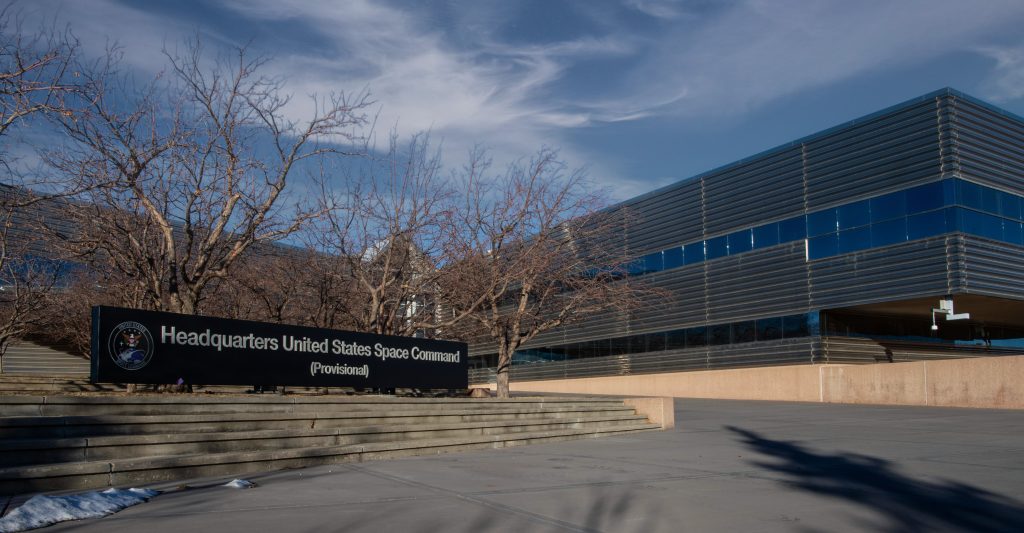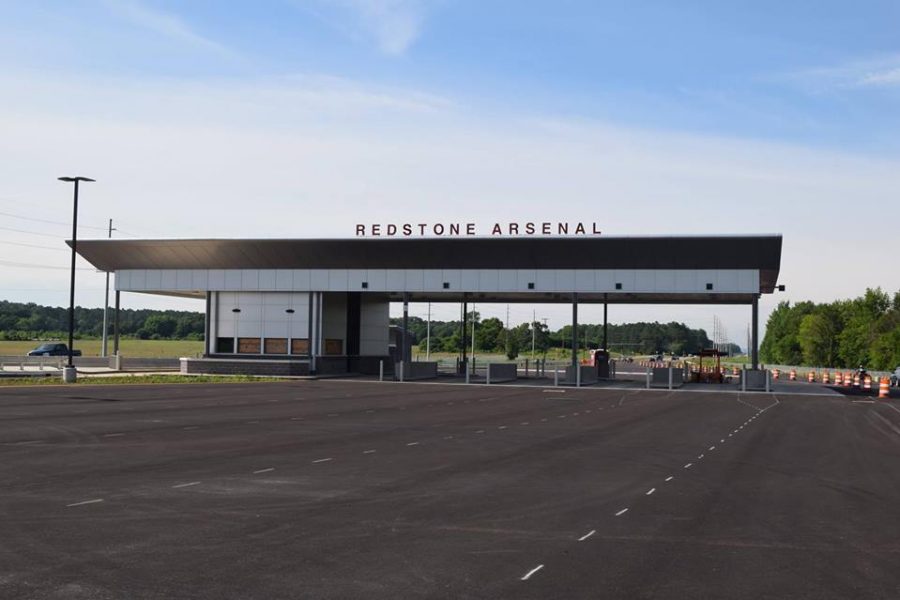President Donald Trump announced Sept. 2 that U.S. Space Command will move its headquarters from Colorado to Alabama, the latest shift in a yearslong back-and-forth on the permanent home for the Pentagon’s orbital combatant command.
“As you know this has been going on for a long period of time, and I am thrilled to report that the U.S. Space Command headquarters will move to the beautiful locale of a place called Huntsville, Alabama,” Trump said in a ceremony at the White House, flanked by Vice President JD Vance, Defense Secretary Pete Hegseth, and members of Alabama’s congressional delegation.
Huntsville is home to Redstone Arsenal, the planned location for the new headquarters, as well the U.S. Army Space and Missile Defense Command and NASA’s Marshall Space Flight Center.
Trump said the move would produce thousands of jobs and “billions and billions of dollars” in investment in Alabama.
“Most importantly, this decision will help America defend and dominate the high frontier, as they call it,” he said, before thanking Hegseth and Air Force Secretary Troy Meink. The Department of the Air Force has led the search for SPACECOM’s permanent home.
“We are way ahead in space, but this will ensure we stay leaps and bounds ahead, because that’s the most important domain,” Hegseth said. “Whoever controls the skies will control the future of warfare, and Mr. President, you’re ensuring that happens.”
For more than five years, US SPACECOM has been operating from Peterson Space Force Base in Colorado, which was where Air Force Space Command had been headquartered. Peterson was designated SPACECOM’s provisional home while officials conducted a site search. Trump selected Alabama before leaving office in January 2021, but two years later, then-President Joe Biden decided SPACECOM would remain in Colorado. The command declared full operational capability in December 2023.
Yet the debate never really ended. Lawmakers from Alabama fought Biden’s decision and voiced confidence that Trump would reverse it once he returned to the White House. Both Alabama and Colorado lawmakers have lodged allegations of political interference with an ostensibly operational decision. As Colorado Democrats and Alabama Republicans jousted over perceived advantages, shortcomings, and political dealmaking, independent government watchdogs noted deviations from past practice and policy. Critics have included the DOD Inspector General and the Government Accountability Office.
When U.S. Space Command was reestablished in 2018, 17 years after a command by the same name was shut down, the Department of the Air Force was tasked with selecting its permanent home using a strategic basing process. By May 2019, six candidate locations were in the mix, in Colorado, Alabama, and California.
The following year, the Secretary of Defense directed the department to reopen its process due to a perceived lack of transparency. Communities were allowed to self-nominate, and the list of candidate locations expanded. In November 2020, the Air Force once again narrowed its list to six bases spread across Alabama, Colorado, New Mexico, Florida, Texas, and Nebraska.
In January 2021, during the final days of his first term, President Trump announced the selection of Redstone Arsenal. Critics cried foul, and when Biden took office, Colorado lawmakers mobilized to press Biden to rescind the selection. He did so in 2023, after the DODIG and GAO reports.

Advocates for Peterson say the command is well-established and moving it now would risk disruptions at a time the U.S. can ill afford to have any vulnerabilities in its space capabilities. They also point to the presence of the Space Force’s Space Operations Command—SPACECOM’s biggest component—at Peterson.
“Moving Space Command sets our space defense apparatus back years, wastes billions of taxpayer dollars, and hands the advantage to the converging threats of China, Russia, Iran, and North Korea,” wrote Colorado’s congressional delegation in a joint statement after the announcement. “ … Being prepared for any threats should be the nation’s top priority; a crucial part of that is keeping in place what is already fully operational. Moving Space Command would not result in any additional operational capabilities than what we have up and running in Colorado Springs now.”
Advocates for Redstone say that Peterson lacks the infrastructure needed for all its growing organizations and they also argue that too much of the Pentagon’s space enterprise is concentrated in Colorado, a potential vulnerability. They also say cheaper construction costs and the lower cost of living in Alabama would help the command staff its headquarters more easily.
“This move will save the taxpayers $480 million. It’s not going to cost more. It’s going to cut $480 million,” Sen. Tommy Tuberville (R-Ala.) said in the Oval Office. “We have the plans intact. It’ll be behind a secure wall … at Redstone Arsenal. We have 40,000 people there. We have the FBI there, we have the Missile Defense [Agency], we have NASA, Blue Origin, and SpaceX. It is the perfect place for Space Command.”
Exactly what it means to move the headquarters is also an open question. Much of what SPACECOM comprises could remain in Colorado, even as the headquarters relocates. For example, U.S. Central Command headquarters in Tampa, Fla., employs about 4,500 total force personnel, but it commands more than twice that number at Al Udeid Air Base in Qatar, among other troops assigned to it across its area of operations.
In a statement shared on social media, U.S. Space Command said it “stands ready to carry out the direction of the President following today’s announcement of Huntsville, Alabama, as the command’s permanent headquarters location.”
